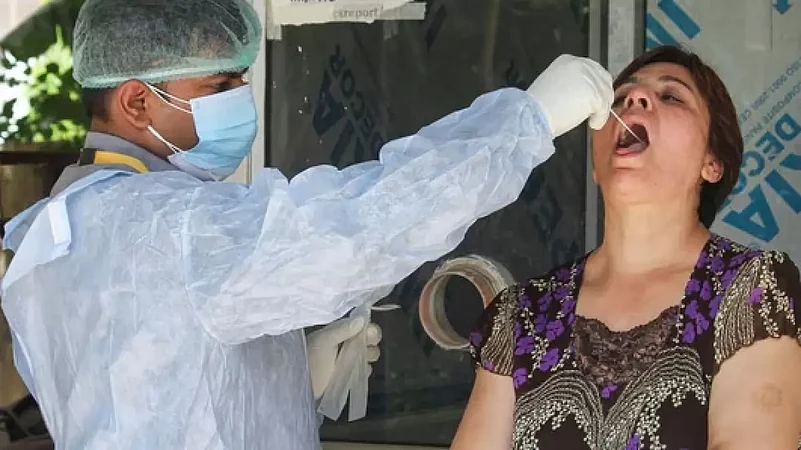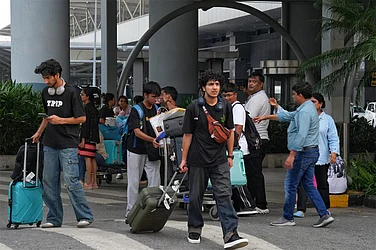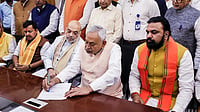The random coronavirus testing of international arriving passengers started at Delhi airport on Saturday as the authorities step up measures to prevent possible spread of the infection in the country.
"We are Ready! Your safety is our priority. 2% random sampling for international arriving passengers will commence today from 10 AM at T3, at no cost to the passengers," Delhi airport said in a tweet in the morning.
Two per cent of passengers arriving in each international flight will be subject to random coronavirus testing at airports from Saturday.Such travellers in each flight shall be identified by the airlines concerned and after submitting the sample, passengers will be allowed to leave the airport.
Thermal screening will be done for all passengers at the point of entry and those found to be symptomatic during screening will be immediately isolated. It also urged everyone to cooperate with the on-ground staff during the testing procedures.
New guidelines issued for the international traveller
The government on Thursday said that two per cent of passengers arriving on each international flight will be subject to random coronavirus tests from December 24.
Following random testing, if anybody is found Covid-positive, the sample should be sent for genomic testing at the designated INSACOG laboratory network, Union health secretary Rajesh Bhushan wrote in a letter to his civil aviation ministry counterpart Rajiv Bansal.
After submitting samples for random testing, travellers will be allowed to leave the airport.
A copy of the positive report shall be shared with Integrated Disease Surveillance Programme at shoc.idsp@ncdc.gov.in by the concerned testing laboratory (besides sharing with the APHOS) to be in turn shared with concerned state or Union Territory for further follow-up action, Bhushan said.
(With PTI Inputs)






















